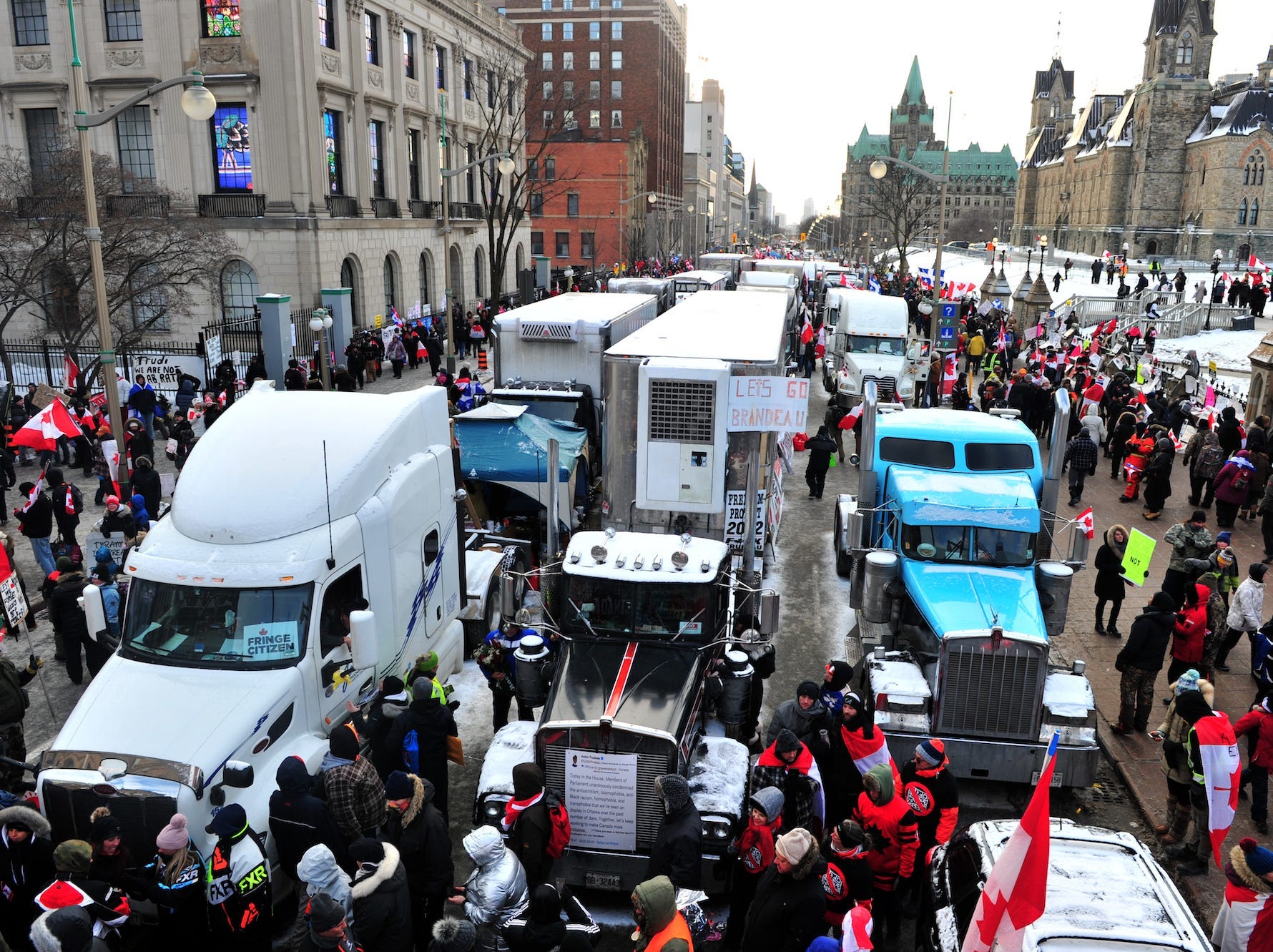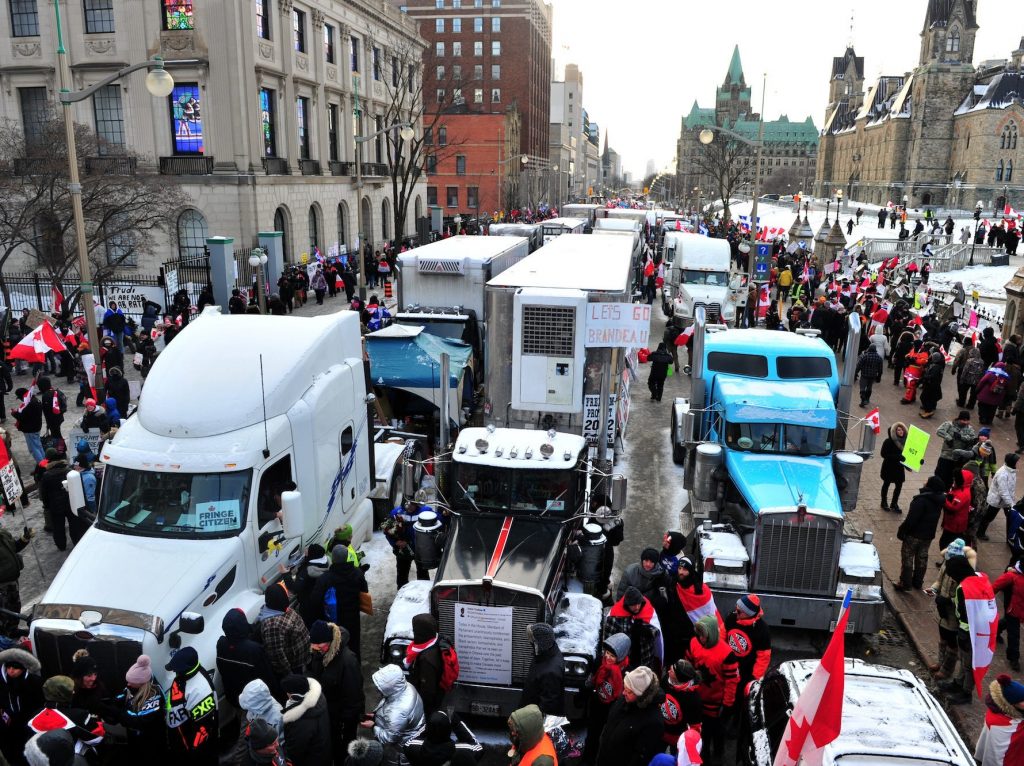
- A group of American truckers is kicking off a weeks-long protest against vaccine mandates.
- The People's Convoy will begin their rally in Southern California and end in Washington DC in March.
- DC law enforcement said they are aware of the protest and are preparing accordingly.
American truckers are banding together to form their own protest against vaccine mandates, an effort that comes on the heels of rampant protests that roiled Canada in recent weeks.
The newly formed The People's Convoy announced plans to launch a "peaceful and unified transcontinental movement" beginning on Wednesday in Southern California and slated to culminate in the Washington, DC area on March 5.
DC law enforcement is making preparations to be on the scene next month in the event the rally escalates and shuts down traffic around the nation's capitol.
Organizers say the rally intends to be a "law-abiding convoy" and include truckers, blue-collar workers, and "freedom-loving supporters from all walks of life," according to a news release Sunday.
"It's time for elected officials to work with the blue collar and white-collar workers of America and restore accountability and liberty — by lifting all mandates and ending the state of emergency — as COVID is well-in-hand now, and Americans need to get back to work in a free and unrestricted manner," The People's Convoy said in the release.
US Capitol Police (USCP) said in a statement on Friday that it is aware of the convoy's plans and is securing resources and extra security measures, including use of the National Guard, accordingly.
"The USCP is closely coordinating with local, state, and federal law enforcement agencies, including DC's Metropolitan Police Department, the United States Park Police, the United States Secret Service and other allied agencies to include the DC National Guard," the USCP said in the statement.
Canadian officials remain on high alert
In Canada, a weeks-long trucker rally in Ottawa came to a close on Sunday after police secured the capitol and workers began cleaning the tattered streets. Authorities towed a total of 76 vehicles and arrested 191 people connected to the rallies after Canadian Prime Minister Justin Trudeau declared a national emergency earlier this month.
The declaration allowed the government to temporarily prohibit residents from public assembly, restrict travel, and force businesses to act accordingly to stop the protests. Demonstrations had caused significant gridlocks across the country and slowed down trade between Canada and the US.
Still, police around the country remain on high alert, citing concern that the rallies may continue and begin erupting in other cities.
"It's still clear that while police have made significant progress, the job is not yet done," Emergency Preparedness Minister Bill Blair told CTV News on Sunday. "The threat, the risks, the reasons we had to invoke emergency powers, they still exist."
Wesley Wark — a senior fellow at the Center for International Governance Innovation, a Canadian public policy group — told the New York Times that there is concern of continued escalation as the protests were "given terrific oxygen to spread its message."
"There is a worry, and it's been expressed in all kinds of ways, that this protest movement will become something much more significant and much more sustained," Wark said.

